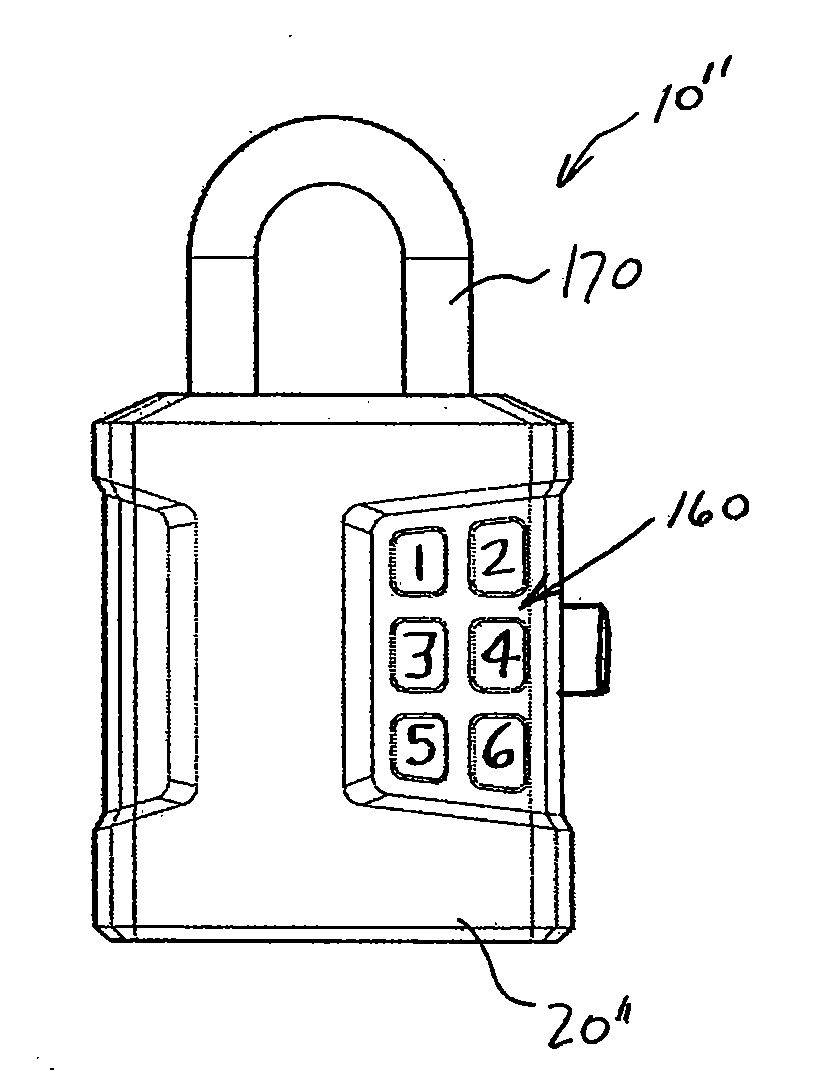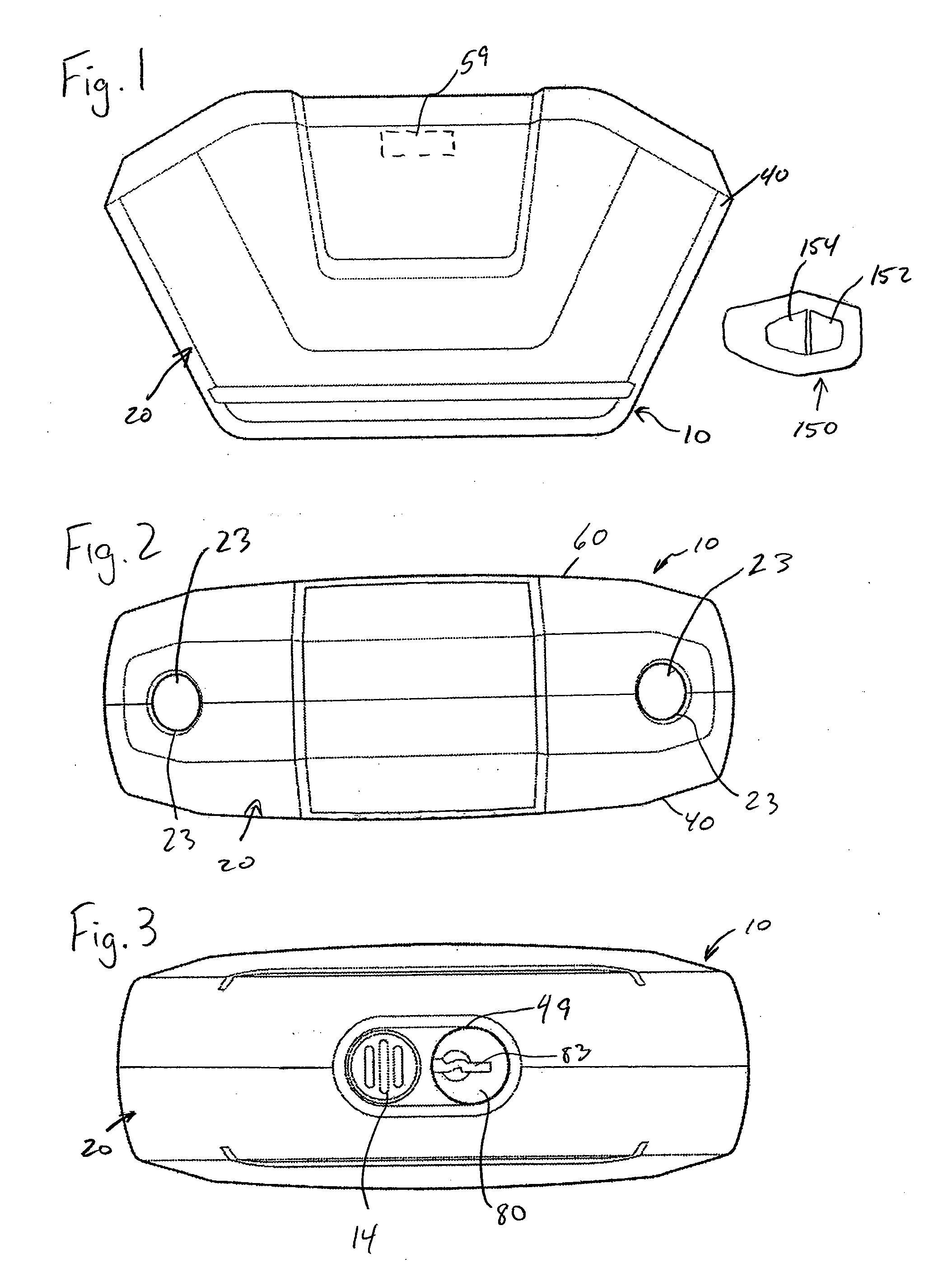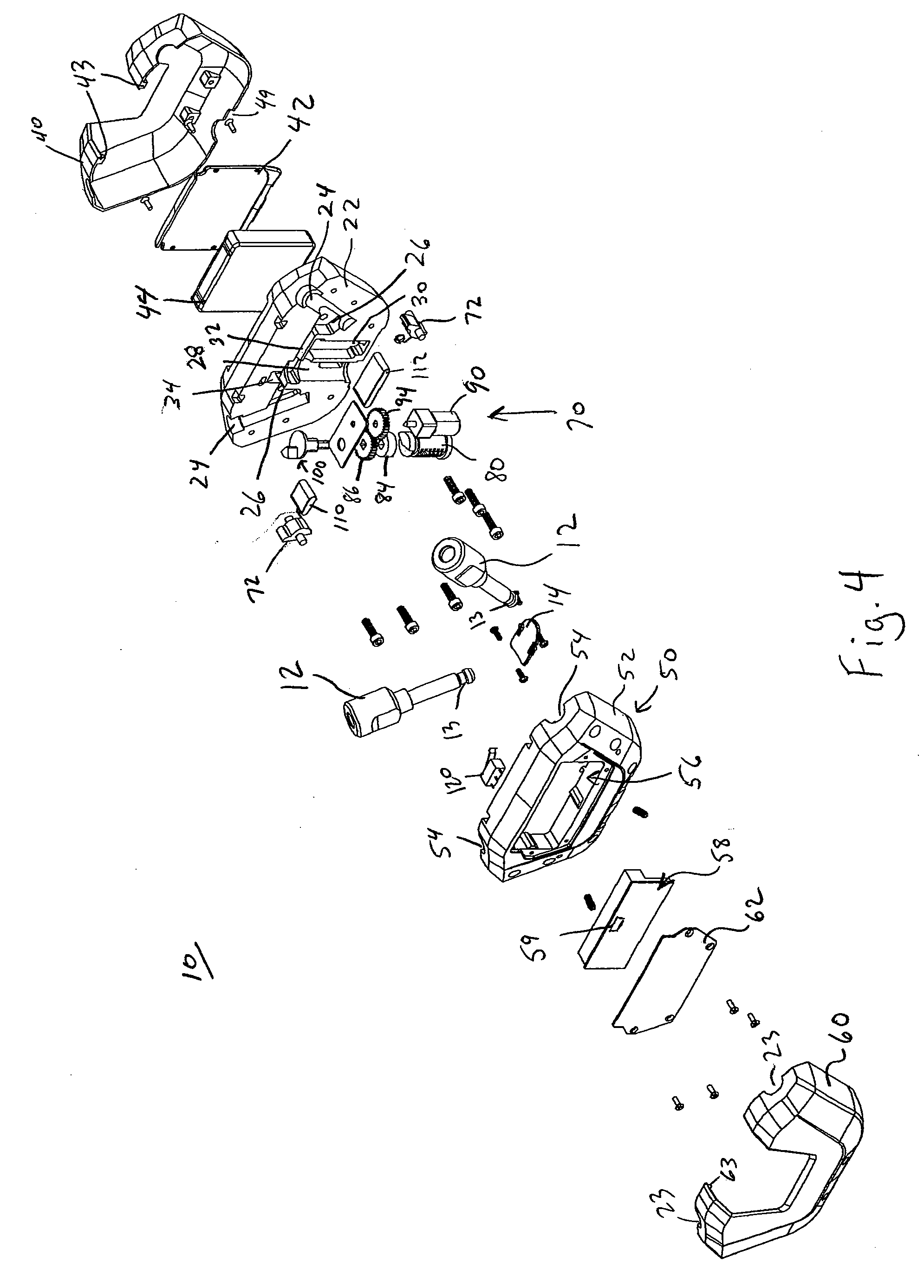Portable lock with electronic lock actuator
a technology of electronic lock actuator and portability, which is applied in the field of portability locks, can solve the problems of inability to open these locks, inability to change the method by which these locks are operated, and small locking pins in bacons are unsuitable for securing a shackle in a padlock
- Summary
- Abstract
- Description
- Claims
- Application Information
AI Technical Summary
Benefits of technology
Problems solved by technology
Method used
Image
Examples
Embodiment Construction
[0043]The illustrated embodiments described herein show cable locks and padlocks, however, the invention is not limited to such. The locks of the present invention may have various body configurations and locking member configurations. For example, the lock may be a cable lock, a padlock, a U-lock, a steering wheel lock or any other lock configuration.
[0044]Referring to FIGS. 1-10, a lock assembly 10 that is a first embodiment of the present invention will be described. The lock assembly 10 is in the form of a cable lock, but the invention is not limited to such. The lock assembly 10 includes a lock body 20 which defines a pair of locking member openings 23. In the present embodiment, each opening 23 is configured to receive a locking leg 12 (see FIGS. 7-10) of a cable lock, but the legs 12 may be of other lock designs. The lock body 20 includes a through opening 49 in which is aligned the key slot 83 of a key lock cylinder 80 configured to receive a key (not shown) to unlock the lo...
PUM
 Login to View More
Login to View More Abstract
Description
Claims
Application Information
 Login to View More
Login to View More - R&D
- Intellectual Property
- Life Sciences
- Materials
- Tech Scout
- Unparalleled Data Quality
- Higher Quality Content
- 60% Fewer Hallucinations
Browse by: Latest US Patents, China's latest patents, Technical Efficacy Thesaurus, Application Domain, Technology Topic, Popular Technical Reports.
© 2025 PatSnap. All rights reserved.Legal|Privacy policy|Modern Slavery Act Transparency Statement|Sitemap|About US| Contact US: help@patsnap.com



